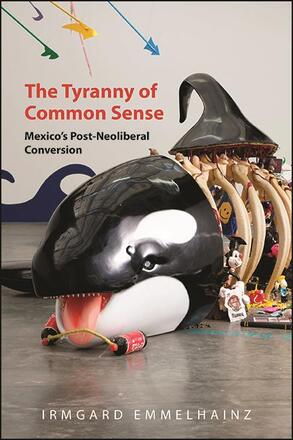
The Tyranny of Common Sense
Mexico's Post-Neoliberal Conversion
Alternative formats available from:
Elucidates how neoliberalism rules all areas of life and operates as a form of common sense, taking Mexico as a case study.
Description
As one of the first countries to implement a neoliberal state apparatus, Mexico serves as a prime example of the effects of neoliberal structural economic reform on our sensibility. Irgmard Emmelhainz argues that, in addition to functioning as a form of politico-economic organization, neoliberalism creates particular ways of seeing and inhabiting the world. It reconfigures common sense, justifying destruction and dispossession in the name of development and promising to solve economic precarity with self-help and permanent education. Pragmatism reigns, yet in always aiming to maximize individual benefit and profit, such common sense fuels a culture of violence and erodes the distinction between life and death. Moreover, since 2018, with the election of a new Mexican president, neoliberalism has undergone what Emmelhainz calls "post-neoliberal conversion," intensifying extractavism and ushering in a novel form of moral, political, and intellectual hegemony rooted in class tensions and populism. Integrating theory with history and lived reality with art, film, and literary criticism, The Tyranny of Common Sense will appeal to academics and readers interested in the effects of neoliberalism and, now, post-neoliberalism in Mexico from a broader, global perspective. Originally published in Spanish in 2016 as La tiranía del sentido común: La reconversión neoliberal de México, the English edition has been thoroughly revised and expanded to encompass a critical vision of the current regime.
Irmgard Emmelhainz is the author of Jean-Luc Godard's Political Filmmaking.
Reviews
"A major contribution to the field. Emmelhainz has an uncanny ability to integrate a broad swath of sources and weave together complicated topics to create a coherent and engaging narrative. By incorporating both recent history and various cultural phenomena into her analysis, she has written a book that is exceedingly relevant and urgent—one that reveals original and crucially important ways to look at contemporary Mexico and its version of neoliberalism." — Amanda L. Petersen, coeditor of Espectros: Ghostly Hauntings in Contemporary Transhispanic Narratives